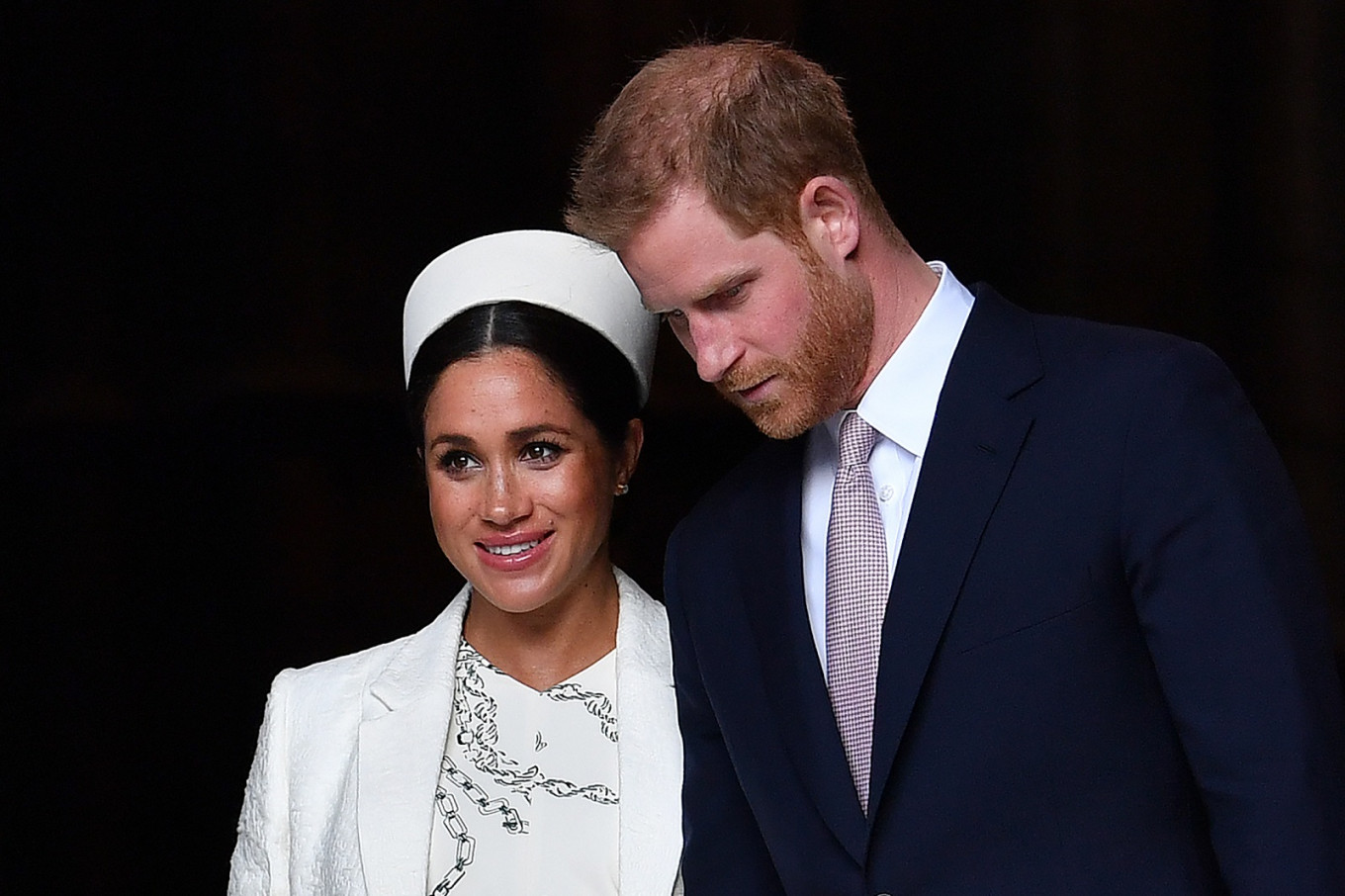Popular Reads
Top Results
Can't find what you're looking for?
View all search resultsPopular Reads
Top Results
Can't find what you're looking for?
View all search resultsHarry and Meghan’s lawsuit truly could be bad for free speech
Tabloids often test the boundaries of good taste – and press freedom.
Change text size
Gift Premium Articles
to Anyone
A
s a loyal American, I naturally want to side with the Duchess of Sussex (née Meghan Markle) in her growing feud with the British tabloid press. Yet the lawsuit that the Duchess and her husband, Prince Harry, have brought against the Mail on Sunday raises serious questions about the freedom of press. Difficult as it is to find anything sympathetic to say about tabloids, they do consistently test the boundaries of free speech — and in this insistence, there really is reason to think that it would be bad for the free flow of information if the royals were to win their lawsuit.
To those accustomed to reading about libel lawsuits focused on salacious facts, the content of the material under dispute in the Sussex lawsuit seems remarkably tame. The central legal claim has to do with a letter the weekend edition of the Daily Mail published from Meghan to her estranged father, presumably provided to the newspaper by the father himself. The suit claims the letter was edited in an intentionally misleading way, omitting parts that would have made the duchess look better than she does in the printed version.
The legal basis for challenging the publication of this letter is copyright violation. In the UK, as in the US, the writer of the letter, rather than its recipient, holds the copyright and is therefore authorized to decide whether the letter may be published.
Both British and American laws do, however, recognize a copyright exception for what British copyright law calls “fair dealing” and American law calls “fair use.” Both systems allow the publication of edited snippets of uncertain length for some purposes. The British doctrine specifically mentions the reporting of current news events as a valid purpose.1 So although the royals are suing the Mail for selectively editing the letter, the Mail could defend itself by saying that it had to edit the letter — rather than publishing it whole — to respect copyright law.
It would set a dangerous precedent if the publication of material protected by fair dealing or fair use were further restricted by whether the quotation was misleading or accurate. That’s very much in the eye of the beholder. And given that publishers who don’t hold copyright are compelled to quote material selectively, it would seriously undercut the free flow of information if the publisher could be held liable for the choice of which excerpts to publish.
The lawsuit also deals with a second set of issues having to do with statements made by the Mail in connection with the royal couple’s renovation of Frogmore Cottage, the historic 1801 house near Windsor Castle where they intend to live. The lawsuit alleges that the newspaper falsely said that the renovation included purchases of a £5,000 copper bathtub and a £500,000 soundproofing system, not to mention a yoga studio, orangery and tennis court; and that the paper falsely stated that the renovations were being paid for by the taxpayers, when they are in fact being paid for by a fund controlled by the Queen.
Read also: Prince Harry sues UK tabloids over 'phone hacking'
Libel law — where British and American law diverge — might provide the possibility of recovery for the royals if the statements are indeed false. In the US, a public figure can only recover damages for libel if the newspaper had what is called “actual malice,” which means it knew or should have known that the defamatory information was false. But in the UK, it’s possible to prove libel if the newspaper has made false statements that cause “serious harm” to someone’s reputation.
It’s far from clear that this report, even if false, seriously harmed the reputation of Duke and Duchess. Seen from the standpoint of free expression, it would almost certainly chill the freedom of the press if a newspaper could be found liable for misstating specific home renovations. And misstating the source of the funds for the project — calling it taxpayer money when in fact it came from the Queen’s accounts — should not be a basis for liability. After all, in some sense all the Queen’s wealth is attributable to the taxpayers, at least indirectly.
At a deeper level, the highly stylized narratives that the British tabloid press construct with respect to the royal family — which doubtless often have little to do with reality — play an important role in public discourse.
It’s not only that the stories fuel an ongoing conversation about the use-value of the royal family relative to its costs. The narratives about the royals are a vehicle for broader social debates about marriage, family, and wealth. The British have been telling such stories since Shakespeare’s “history” plays (which aren’t very historically accurate) and long before.
Freedom of expression demands that stories about royals be given substantial license. That’s a price that they should have to pay for their substantial privileges.
1The law provides that “Fair dealing with a work (other than a photograph) for the purpose of reporting current events does not infringe any copyright in the work provided that … it is accompanied by a sufficient acknowledgement.”
Noah Feldman is a Bloomberg Opinion columnist. He is a professor of law at Harvard University and was a clerk to US Supreme Court Justice David Souter. His books include “The Three Lives of James Madison: Genius, Partisan, President.”
This column does not necessarily reflect the opinion of the editorial board or Bloomberg LP and its owners.











